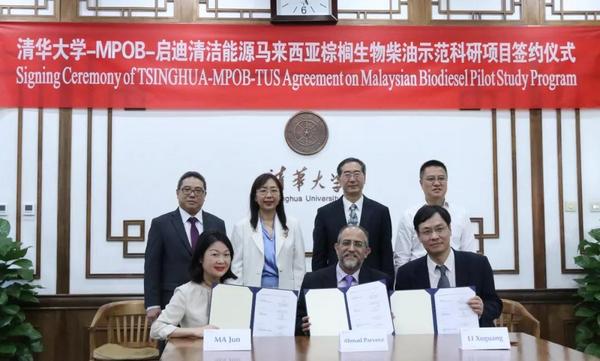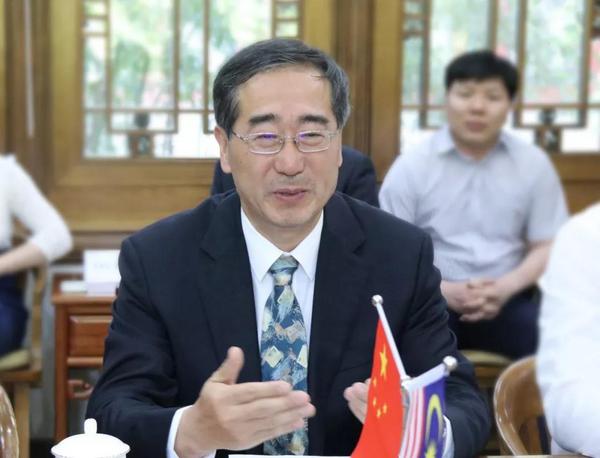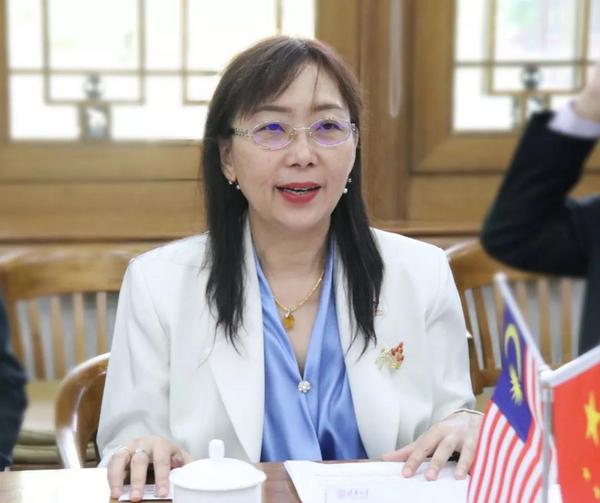Tsinghua University,MPOB and Tus-Clean Energy promote signing of research project agreement
2019-05-30

The signing ceremony of Tsinghua-MPOB-TUS agreement on the Malaysian Biodisel Pilot Study Program

Jiang Shengyao, executive deputy secretary of the CPC Tsinghua University Committee, speaks at the signing ceremony

Teresa Kok Suh Sim, minister of Primary Industries of Malaysia, shares her opinion on elaborating supporting policies for biodiesel applications
Tsinghua University, the Malaysian Palm Oil Board and the Tus-Clean Energy which is affiliated to Tus Holdings, a member enterprise of Tsinghua Holdings, worked together to promote the signing of a pilot research and development project on palm biodiesel.
The executive deputy secretary of the CPC Tsinghua University Committee Jiang Shengyao welcomed the delegation led by Teresa Kok Suh Sim, minister of Primary Industries of Malaysia, pointing out that Tsinghua University pays close attention to research and application of biofuels in transportation.
Teresa Kok Suh Sim said that she felt happy witnessing the signing of the agreement and advised the Chinese government to speed up elaborating supporting policies for biodiesel applications.
She also expressed her hopes that Tsinghua University and Tus Holdings can use their scientific, research and industrial strengths to offer professional support for biodiesel nutritive value research and promote biodiesel applications in China.
Wen Hui, president of Tus-Clean Energy, introduced its research achievement and planning in biodiesel industry and said that it will accelerate industrialization of biodiesel and that biodiesel B5 has already produced sound application effects in Shanghai.
Tus-Clean Energy will launch Qingdao-based biodiesel pilot projects and work to realize the application of biodiesel from B5 to B10. Wen Hui said he hopes to accelerate commercialization of biodiesel- related technologies to benefit both countries.
Biodiesel refers to a kind of renewable liquid fuel which is produced by reaction between animal and vegetable fats and oil and alcohol, the dominant sector of which is FAME (Fatty Acid Methyl Ester). In 1983, American scientist Graham Quick successfully applied it in diesel engines and came up with the concept of biodiesel.
Producing biodiesel can help reduce China’s reliance on imported petroleum so as to guarantee energy security. It could be renewable resource that creates more environmentally-friendly exhaust emissions than petroleum diesel.

 Facebook
Facebook WeiXin
WeiXin CONTACT US
CONTACT US










 Tsinghua Holdings works hard for better ecological environment
Tsinghua Holdings works hard for better ecological environment